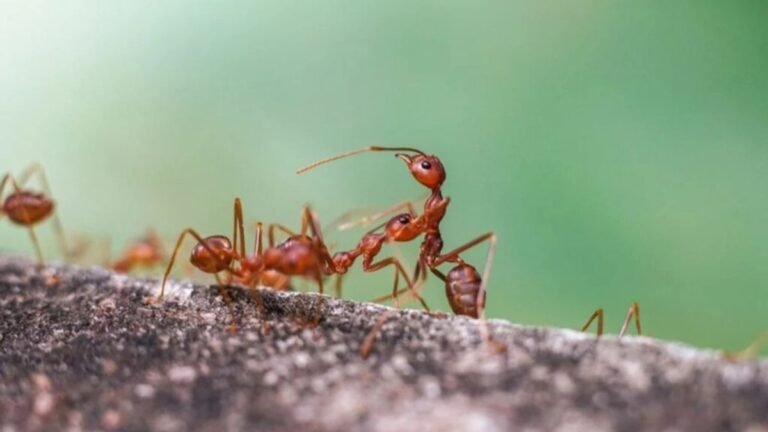Ants infiltrating your home or overtaking your garden can quickly escalate from a minor annoyance to a significant problem. As social insects, ants thrive in numbers, effectively communicating and collaborating within colonies. This fascinating yet frustrating characteristic makes their management a priority for many homeowners. While the expertise of pest control specialists can be invaluable, understanding how ants operate can empower you significantly. By tapping into this knowledge, you can effectively disrupt their networks and minimize their presence in your daily life.
With the appropriate strategies, you can mitigate the constant march of these minuscule invaders. This article aims to provide a thorough overview of essential strategies for managing ant populations. Each step you take contributes to a sustainable solution, from prevention and identification to executing DIY methods and enlisting professional help. With practical advice, you can make sure that any ant incursions are quickly addressed, securing your space for the long term.
Table of Contents
Key Takeaways:
- A thorough approach to ant control can significantly disrupt or eliminate infestations.
- Gaining insight into ant behavior and various control methods enhances your management capabilities.
- Consistent maintenance alongside preventive measures is crucial for keeping ants at bay.
Understanding Ant Behavior
Effective ant control starts with understanding how these tiny creatures operate. Most ants you encounter in your home or garden are worker ants foraging for food—a vital aspect of their survival. Upon discovering a food source, ants release pheromones to lead fellow colony members, creating well-organized trails. Disturbing these pathways can help manage colonies.
Knowing the species involved can lead to more efficient control measures. For instance, some ants prefer sugary foods, while others target proteins. Identifying the ant species invading your home or garden allows for a more targeted and efficient control strategy, whether using sugar-based baits or protein-rich lures.
Prevention Techniques
Preventive measures form the cornerstone of any successful pest control plan. Start by examining and sealing potential entry points around doors and windows. Ants are persistent; even the tiniest gaps can serve as entry points. Addressing moisture issues is equally crucial, as many ants are attracted to water and thrive in damp conditions.
Natural deterrents provide a chemical-free alternative for those seeking gentler methods. Substances such as vinegar and peppermint oil disrupt ants’ scent trails, making them powerful allies in your fight against ants (natural deterrents). Coupled with a regimen of cleanliness—such as timely cleaning of spills and proper food storage—you create an environment far from welcoming ants, significantly reducing their attraction to your space.
Identifying Common Ant Problems
Timely identification of ant infestations is crucial for effective control. Some common signs include witnessing frequent trails or clumps of ants, particularly near food or water sources. Ant nests can sometimes be outdoors in mounds, usually found in lawns or under debris.
Unattended ant problems can escalate rapidly as colonies expand, making early detection a priority. Whether indoors or outdoors, recognizing these signs promptly allows for early intervention, preventing the need for more drastic measures later.
DIY Ant Control Methods
DIY solutions can be effective in managing smaller ant populations. Baits and traps are common tools in a homeowner’s arsenal, designed to attract and eliminate ants gradually. The bait, containing a food attractive to ants, is laced with a slow-acting poison. When worker ants transport it back to the nest, it affects the entire colony, offering a more comprehensive solution.
Homemade solutions can provide quick fixes; mixing sugar and boric acid creates an effective deterrent, while various oils can block scent trails. Plant-derived insecticides offer effective and child-safe alternatives for those inclined towards natural remedies, suitable for immediate relief without long-term harm.
Professional Ant Control Options
In cases where infestations exceed DIY capabilities, professional help may be necessary. Pest control services provide tailored, environmentally-friendly solutions. With Integrated Pest Management (IPM), professionals can approach pest control with an eye towards long-term solutions and environmental responsibility (Integrated Pest Management). Professionals assess the infestation scope, providing treatments specific to the species involved and the environment, ensuring thorough eradication.
Long-Term Maintenance and Monitoring
Effective ant control is ongoing. After addressing an infestation, regular maintenance and monitoring are key to upholding a pest-free environment. Evaluating your space for ant activity should become routine, especially around known entry points and potential nesting sites.
Understand that ant behavior can vary with the seasons. Warmer months may see higher activity, necessitating heightened vigilance. By aligning your strategies with these natural cycles, you can preemptively counter potential invasions, maintaining long-term peace in your home and garden.
Benefits of Sustainable Pest Control Practices
Opting for sustainable pest management strategies benefits not just your immediate environment, but also the larger ecosystem. Eco-friendly solutions minimize chemical usage, reducing potential harm to beneficial insects and regional biodiversity while achieving effective control.
Reducing chemical inputs leads to improved safety standards, contributing not only to individual well-being but also to broader community health. Adopting sustainable practices today secures a safer environment for future generations.
Common Myths About Ant Control
Myths in pest control often lead to misconceptions and ineffective treatments. One persistent myth is that boiling water on an anthill eradicates the entire colony. While it might destroy visible ants, the queen and deeper parts of the colony often survive, enabling the colony’s return.
Successful ant control relies on science-based methods. By dispelling myths and focusing on proven techniques, homeowners can establish a robust defense against ants and ensure a home free from unwanted bugs.

